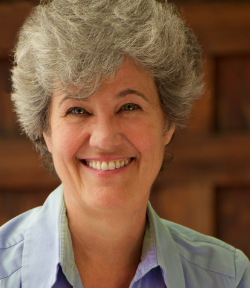By Meredith Snow

Photo credit: Diane Alancraig Photography
The 60th anniversary of ICSOM’s founding comes at an interesting inflection point in our history—as in “may you live in interesting times…” As the dust settles from the unforeseen and nearly catastrophic pandemic shutdown, we are returning to full concert schedules, attendance restrictions are lifting, and our audiences are coming back. We are nearly back to “normal”.
But it doesn’t feel normal. So much has changed in our social and political landscape that it seems impossible to just pick up where we left off.
Nor, I believe, should we. The pandemic deepened the revelation of social inequities and systems of oppression that continue to exist in our country. Even before the pandemic, the emerging culture of white supremacy and authoritarian leanings over the past five years has been a step in the wrong direction. We have a responsibility as private citizens and as members of our orchestras to recognize and respond to these inequities.
The decades of 1960 & 1970 were an analogous era of tremendous social and political upheaval in this country. Racial and economic oppression gave rise to the civil rights & Black Power movements, the anti-Vietnam war protests, and a burgeoning counterculture in the youth of our society.
May of 1962 was the first meeting of ICSOM’s founding orchestras, “dedicated to the promotion of a better and more rewarding livelihood for the skilled performer and to the enrichment of the cultural life of our society”. ICSOM began its campaign fighting for and consolidating power in relation to the governance of our orchestras, both with our managements and within the American Federation of Musicians (AFM). The right to bargain our salaries and working conditions was an unparalleled step in musician autonomy and leadership. Orchestras grew from part-time work to full-time employment. In 1969, ICSOM was the first player’s conference to be granted full status within the AFM (Fifty Years of ICSOM, Tom Hall).
The establishment of a National Endowment for the Arts was the aspiration of the John F. Kennedy administration. In 1963, just months before his assassination, the first Senate bill was put forth proposing a national arts council. It wasn’t until 1965, under the Lyndon Johnson administration, that the National Endowment for the Arts was passed into law, making government funds available to non-profit arts institutions (www.arts.gov/sites/default/files/nea-history-1965-2008.pdf).
Our orchestras were among the first recipients and they flourished. Throughout a decade of often contentious negotiations, salaries increased and weeks were added to seasons. New halls were built to accommodate our orchestras and neighbor arts organizations. Orchestras became a central hub in the cultural life of our cities. The growth of our industry, while not always peaceful, was remarkable in its speed and scope.
One of ICSOM’s stated goals from its inception was equal employment opportunities for musicians of color and an end to segregated audiences (Senza Sordino June ‘21 President’s Report). Seven years later, ICSOM went on the record in support of equal rights for women in all employment, and specifically in the field of symphony, opera, and ballet orchestras. While ICSOM’s goals were lofty, six decades later, we remain well short of those aspirations around racial and gender representation as well as equity. Women are approaching 50% of our ranks but principal positions and their concomitant pay remain elusive. We continue to work to build environments in our orchestras that attract and retain musicians of color, but we still have much work to do to create truly welcoming and safe environments for ALL of our peers.
So what can ICSOM do? We share relevant information with our orchestras; negotiation strategies, salaries, workload and audition practices. We can help other orchestras experiencing work stoppages through our Calls To Action and by supporting them on social media. ICSOM can promote and educate, but are we able to act together?
In 1984, musicians from ICSOM orchestras across the country volunteered to play concerts for Musicians Against Nuclear Arms (MANA) to benefit Physicians for Social Responsibility, a national organization working to prevent the proliferation of nuclear arms. MANA sponsored concerts in Boston, San Francisco, Cleveland, Chicago, and Philadelphia. Zubin Mehta, who conducted the New York concert, said “The boards of orchestras wouldn’t touch this. No official organization would.” But the musicians of ICSOM were so eager to participate they couldn’t all fit on stage. Some had to be turned away.
Last month, the ICSOM governing board engaged Jessica Schmidt of Orchestrate Inclusion (https://www.orchestrateinclusion.com) to help us and ICSOM’s DEI Caucus to envision what we can most effectively and meaningfully do to support our members in their own DEI work. Ms. Schmidt has worked with several of our orchestras already and presented at last summer’s conference in Pittsburgh. Despite our differing CBAs, locations and budget sizes, what power do we have to make lasting change as a team of musicians and as importantly—human beings? What might ICSOM be best equipped to do in support of its orchestras’ DEI journeys? What might we be leaving on the table?
In the next edition of Senza Sordino, we will be exploring the work of our orchestras who have already begun a deep dive into DEI. What excites them about the work and what are they learning? Have discussions resulted in changes at their workplace? What are the challenges they face? First up are the San Francisco Symphony and Minnesota Orchestra. Please contact me or editor Mike Muszynski if your orchestra would like to participate in sharing your organization’s experience.
The pandemic shutdown could have incapacitated our industry. It didn’t. I am so glad to be back at work and I’m grateful for the sacrifice, determination, and generosity of everyone who helped us come through this crisis. I look forward to exploring what ICSOM can do to continue to make our orchestras more resilient and equitable, and our cities a better place to live.





